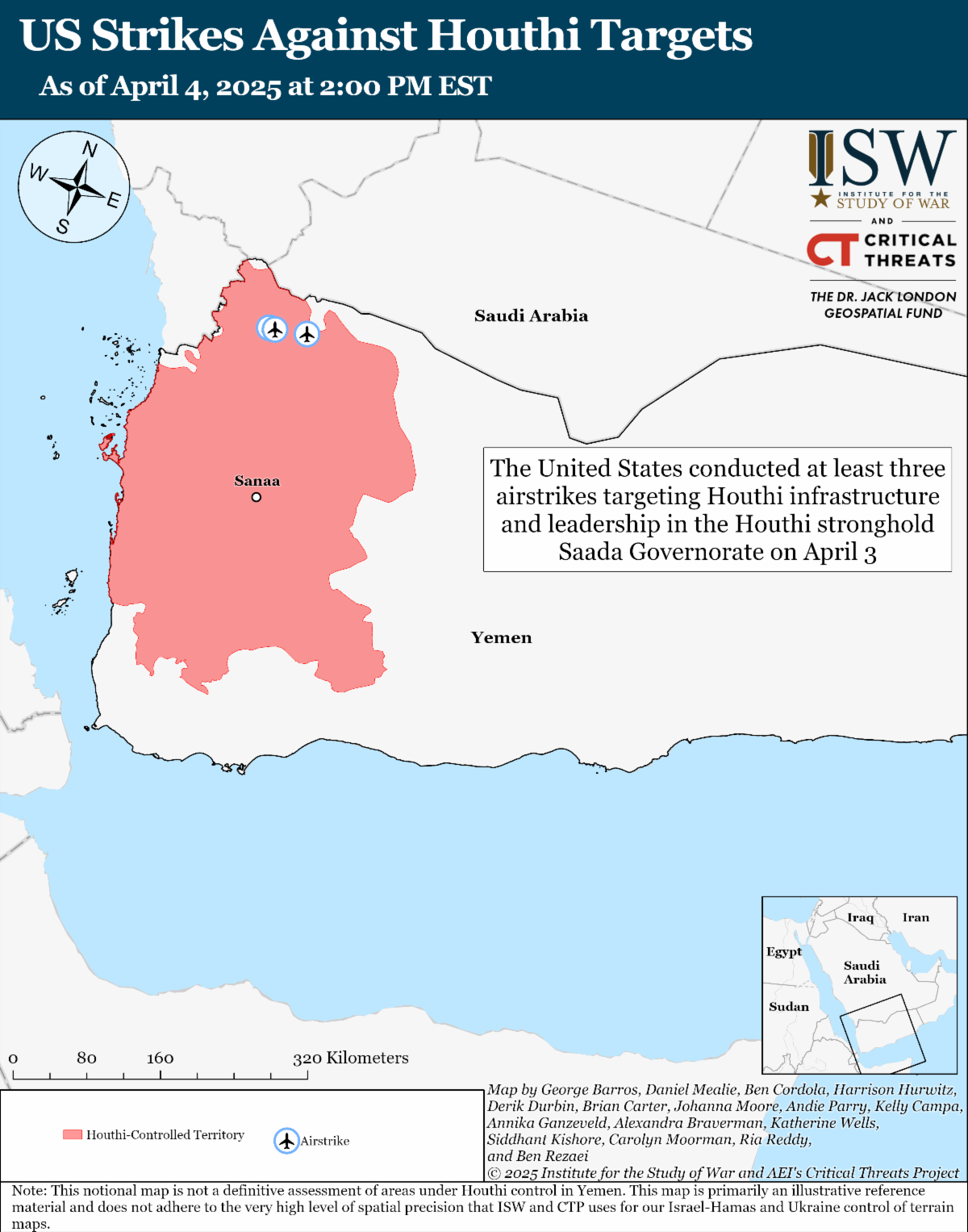US Central Command (CENTCOM) is conducting a military operation in Yemen that aims to render the Houthis unable or unwilling to continue attacks that threaten US ships and freedom of navigation in the Red Sea. This does not imply that CENTCOM must destroy all Houthi missiles, drones, and launchers in Yemen. US President Donald Trump ordered the US military to restore the freedom of navigation and prevent attacks on US shipping in the Red Sea. Western media reported on April 4 that Pentagon officials have told Congress and US allies that the US air campaign in Yemen has had only limited success in destroying Houthi missiles, drones, and launchers in Yemen. There are likely multiple different operational concepts that would successfully render the Houthis unwilling or unable to continue attacks targeting international shipping. A focus solely on missiles, drones, and launchers would be very unlikely to make the Houthis unwilling or unable to target international shipping because it would be very difficult to destroy all Houthi weapons stockpiles and missile launchers. Such an operation would not seriously threaten Houthi control in Yemen. The Houthis’ top priority remains maintaining control over Houthi-controlled territory and ultimately defeating the internationally recognized government of Yemen.
CENTCOM can render the Houthis unwilling or unable to continue attacks without destroying all Houthi missiles, drones, and launchers in Yemen. Yemeni media and officials and US officials have reported that CENTCOM has targeted Houthi communications, training centers, underground facilities, leaders, and other assets. CTP-ISW cannot currently assess the overall impact of these strikes on Houthi decision-making. These strikes could degrade the Houthis' ability to target shipping by disrupting targeting cycles and command networks, however. Leadership strikes, particularly against mid-level leaders responsible for imposing local Houthi control, could disrupt Houthi internal security over time. US officials currently assess that the initial US strikes targeting Houthi assets have disrupted the Houthi command-and-control network and limited the Houthi ability to target international shipping. This would suggest that the air campaign has achieved some temporary military effects, though these effects are temporary without continued pressure on the Houthis.
A US airstrike killed a Houthi Hudaydah Governorate Police supervisor on April 4. Continued US airstrikes targeting Houthi supervisors could destabilize Houthi internal security over time. The Houthi regime uses a “supervisory” system to maintain control over its governance structures. Supervisors fill a similar role to political commissars in the Soviet Union by ensuring that non-Houthi government leaders remain loyal to the Houthi movement. A sustained air campaign against these individuals could seriously disrupt Houthi internal security in certain areas.
Key Takeaways:
- Yemen: The US Central Command (CENTCOM) is conducting a military operation in Yemen that aims to render the Houthis unable or unwilling to continue attacks that threaten US ships and freedom of navigation in the Red Sea. This does not imply that CENTCOM must destroy all Houthi missiles, drones, and launchers in Yemen. The current air campaign could render the Houthis unable or unwilling to continue attacks in the Red Sea by disrupting Houthi targeting cycles and command-and-control networks.
- Iranian-backed Militias in Iraq: Iranian-backed Iraqi militias have increasingly threatened to target US forces in Iraq and Syria, likely to both deter a US strike on Iran and to ensure the US forces withdraw from Iraq.
- Iranian Nuclear Negotiations: The United States continues to pursue direct negotiations with Iran to secure a comprehensive deal that fully dismantles Iran’s nuclear program, according to an unspecified senior US official speaking to the Wall Street Journal on April 4.
- Iran and Syria’s Insurgency: Senior Iranian official Ali Akbar Velayati criticized the interim Syrian government’s handling of recent violence in coastal Syria and Israeli operations in Syria, likely as part of an Iranian effort to discredit and undermine the Syrian government. Velayati’s statements and the Iranian efforts to discredit and undermine the Syrian government reinforce insurgent objectives to delegitimize the government with foreign audiences.
| 




 [ISW] 이란 업데이트, 2025년 4월 8일
[ISW] 이란 업데이트, 2025년 4월 8일
 [ISW] 러시아의 공세 캠페인 평가, 2025년 4월 3일
[ISW] 러시아의 공세 캠페인 평가, 2025년 4월 3일